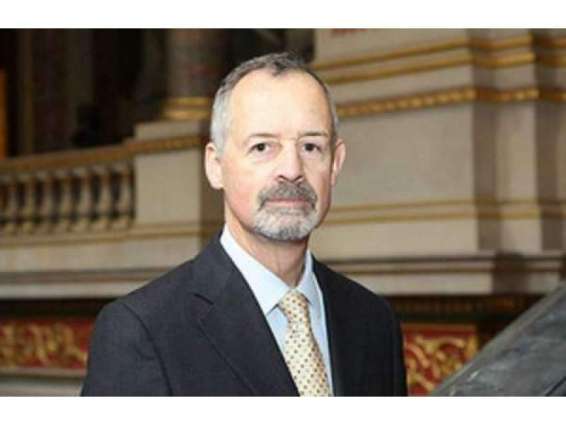Gaps" in international intelligence make it difficult to estimate the finances of the Islamic State terrorist group (IS, ISIL, outlawed in Russia), which are believed to stand between $50 million and $300 million, with a part of them generated from trade of looted cultural artifacts and even invested in legal businesses, Coordinator of the UN Analytical Support and Sanctions Monitoring Team concerning ISIL, Al-Qaida (banned in Russia) and Taliban Edmund Fitton-Brown told Sputnik
GENOA (Pakistan Point News / Sputnik - 08th November, 2019) "Gaps" in international intelligence make it difficult to estimate the finances of the Islamic State terrorist group (IS, ISIL, outlawed in Russia), which are believed to stand between $50 million and $300 million, with a part of them generated from trade of looted cultural artifacts and even invested in legal businesses, Coordinator of the UN Analytical Support and Sanctions Monitoring Team concerning ISIL, Al-Qaida (banned in Russia) and Taliban Edmund Fitton-Brown told Sputnik.
"We regularly quote the figure for the total financial reserves available to ISIL as between 50 and 300 million Dollars, which is a very wide range but it reflects the fact that there is a lot of international uncertainty in this subject, and I think it is fair to say that in terms of the international intelligence gaps, I think this is one of the biggest, which is a really accurate picture of ISIL finances," Fitton-Brown said in an interview.
A part of the money is hidden in cash, while some of the funds are invested in businesses, even those legal, he went on.
"Some money has definitely been invested in businesses. And these businesses will be in many cases legal businesses. Not all of them will be in Iraq and Syria. Some of them may be in the neighborhood or some of them may even be further afield," he continued.
According to the UN team coordinator, there are IS investments in real estate, fisheries, boarding houses, properties and the automobile sector. Another field is trade in looted antiquities and cultural artifacts, where IS activities overlap with those run by organized crime bands. Revenues generated from the latter business are the most difficult to assess, Fitton-Brown says, because IS excavation activities leave people unaware of what is missing, "as opposed to where museums have been looted when at least we know what has been taken."
Asked if any of the businesses in which IS had invested was located in Europe, Fitton-Brown replied: "very likely yes."
"ISIL has sought to diversify and put its money in various places where it will be accessible for future use ... that includes the immediate neighborhood, but I think it also includes further afield, and therefore Europe is possible," he explained.




